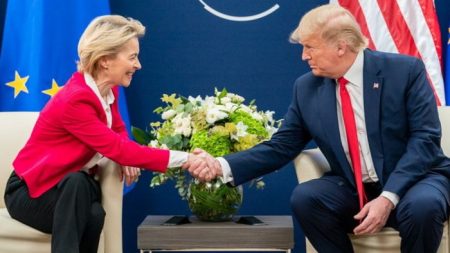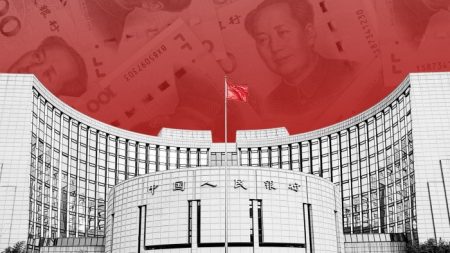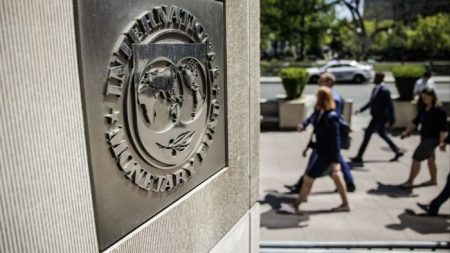Unlock the Editor’s Digest for free
Roula Khalaf, Editor of the FT, selects her favourite stories in this weekly newsletter.
Iran and Hizbollah on Tuesday vowed to retaliate after a suspected Israeli air strike on Tehran’s consulate in Damascus killed seven Revolutionary Guard officers, including two ranking commanders.
Iran’s president Ebrahim Raisi said that Monday night’s strike in the Syrian capital “would not go unpunished”, as the Supreme National Security Council of Iran convened an emergency meeting in the hours following the attack.
Hizbollah, the Iran-backed Lebanese militia that has traded near-daily missile strikes with Israel, blamed Israel for the “assassination” of the Guard officers. “This crime will not pass without the enemy receiving punishment and revenge,” the group said.
Monday’s strike marked a significant escalation in the hostilities that have engulfed the region since Hamas’s attack on Israel on October 7.
While Iranian officials have made clear they do not want a direct conflict with Israel and the US, the attack on the diplomatic mission could force Tehran’s hand, analysts said, heightening fears of a broader regional conflagration.
Iran’s National Security Council said on Tuesday that it had made “due decisions” on its response to what it called “Israel’s latest war crime against a foreign mission with diplomatic immunity”, but did not elaborate further.
The incident came the same day as a suspected Israeli strike on an aid convoy in Gaza killed seven humanitarian workers with World Central Kitchen, including Australian, Polish and Palestinian citizens as well as a dual US-Canadian national.
Israel announced an investigation on Tuesday into the aid convoy strike, which it said would “help us reduce the risk of such an event from occurring again” — an apparent acknowledgment that it played a role in the deaths.
Israel, which rarely confirms strikes against targets linked to Iran, has not commented on the attack in Damascus.
Iran’s foreign minister Hossein Amirabdollahian said on Tuesday that the strike in Damascus showed Israel had become desperate after “defeats versus the Axis of Resistance” — a reference to the network of militant groups across the region that includes Hamas, Hizbollah and Yemen’s Houthis.
“[Israel’s Prime Minister Benjamin] Netanyahu has totally lost his mental balance due to consecutive defeats in Gaza and an inability to fulfil Zionist ambitions,” he said.
Iran’s UN mission called for an urgent UN Security Council meeting to address the “egregious violation” and for those responsible to be “swiftly brought to justice”.
“The aggressor Zionist regime bears full responsibility for its consequences and the Islamic Republic of Iran reserves its legitimate and inherent right under international law and the United Nations Charter to take a decisive response to such reprehensible acts,” it said.
Iran and the US have had no formal diplomatic relations for decades, but the Swiss embassy in Tehran represents Washington’s interests. “The US has to be accountable,” Amirabdollahian added, without clarifying what the message included.
Brigadier General Mohammad-Reza Zahedi, who was killed in Monday’s strike, has played an increasingly important role within the Guards since its commander Qassem Soleimani was assassinated by the US in 2020, according to two people with knowledge of Tehran’s network of proxies in the region.
Zahedi helped “develop and advance” the work of the resistance in Lebanon for many years, according to Hizbollah. “He shared our concerns and responsibilities for a long time.”
Another leading member of the Guards was killed in a suspected Israeli air strike in Syria in February, in the second attack targeting Tehran’s forces in the country in as many weeks.
Read the full article here












